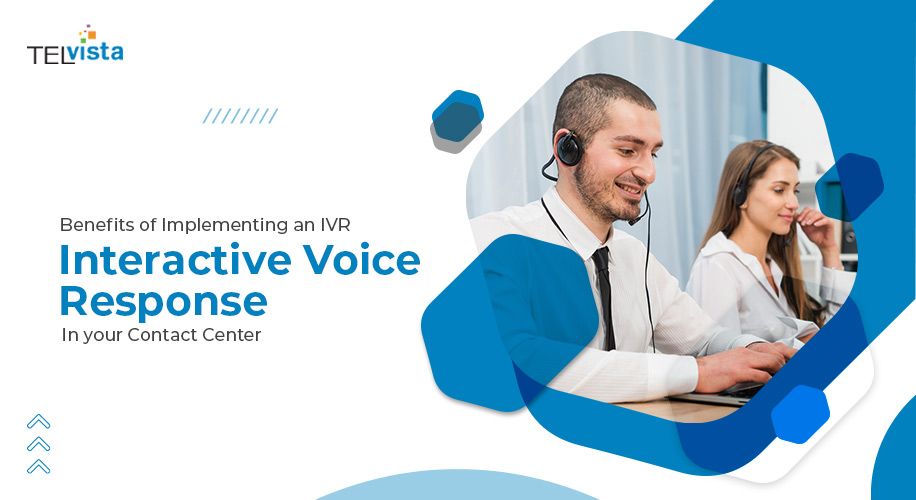Today, when customer experience has unprecedented importance, extended hold times and unavailability of agents leave a negative impact.
A high call influx is hard to manage for any company’s customer support regardless of the size of its support team. Plus, it often adds to the stress for agents. Utilizing Interactive Voice Response significantly reduces the burden on agents by identifying, segmenting, and directing customer queries to the right agent and where possible providing self-service without an agent needed.
What Is Interactive Voice Response System?
An IVR system is an auto-responding telephone technology that plays recorded greetings and IVR menus. The main task of IVRs is to smartly direct customer queries to engage and route customers in their call journey.
However, creating smart IVR menus with options accessible from dial pads or dialogue can make an IVR a channel of self-service. This type of usage can significantly help reduce agents, wait times and is an important component in the multi-channel and omnichannel contact center solutions customers expect from current technology.
Smart IVRs can interact with customer databases and a variety of applications to look up, verify and provide information back to a customer without human intervention. With today’s artificial intelligence and machine learning capabilities, these capabilities have become much more customer friendly and capable of handling dynamic requests.
Benefits of Interactive Voice Response for a Call Center
The areas where IVR serves a company are fundamentally the same. But the effectiveness and extent of how a business makes use of it depend on the type of business. For example, an IT support company can use this service to open, update and close customers on tickets and route a call to a specialized expert who can resolve an issue. Whereas IVR of a telecommunication company may help customers know about offered services, and balances, provide product or plan information, or the status of an order.
Based on the type of IVR, IVR menu, and its implementation, businesses benefit from interactive voice response systems in a variety of ways:
Increased Agent Efficiency
Attending every call and going through the process of asking customers about their issues and then directing calls takes a lot of time. Using Interactive Voice Response for voice support to handle repetitive and simple inquiry transactions as well as connecting callers immediately to the right department saves time and increases customer satisfaction. Agents are left available to handle more complex calls for which they have the specific training.
Low Operational Costs
Though enhancing customer experience is a priority for businesses, expanding the customer support team increases operational and administrative costs. IVR is a great workforce management solution as it can serve as a virtual agent and help reduce customer support expenses.
Improved Agent Morale
Agents in customer support departments or any agency offering contact center solutions have some of the highest turnover rates. It is a rather stressful job and mundane tasks like recording a customer’s data on every query can be exhausting not to mention boring. An IVR can do that for you and save agents from experiencing low morale and frustration.
Better Call Traffic Management and Lower Bounce Rates
The quality of service can falter when the customer queue is long. An IVR serving as a self-service portal can manage significant loads. It presents customers with the IVR prompt menu, suitable options for interactions, and a call-back option if the expected hold time is long.
Your customers need answers and fast. IVR takes care of that. According to Gartner, 44% of Gen Z and 52% of Millennials prefer self-service, and that’s exactly what IVR is all about! 24/7 Support
Today, customers expect 24/7 customer support. The challenge for businesses in offering that includes maintaining the quality of service, especially during the nighttime, hiring people, and managing operating expenses. A team of fewer individuals working at night equipped with an IVR can distribute the workload smartly and offer quality service.
Higher First Contact Resolution Rates
Resolving a customer’s query in the first contact is the KPI of every support team. Your IVR system connecting to the relevant department in the first interaction takes out the hassle of multiple redirects for customers. This way, your customer support team can minimize customer effort and increase efficiency of the process.
Enhanced Quality Assurance
IVR systems have the feature to record call interactions between agents and customers for quality assurance. Quality assurance teams can get insights into an agent’s performance. Based on this data, companies can conduct resource training to enhance the quality of service.
Elevated Customer Satisfaction Scores
Customer satisfaction is the key to customer retention and a higher overall net promoter score. Increasing employee efficiency, raising morale, decreasing friction for customers. I improving the quality of service are all linked to high customer satisfaction or CSAT scores.
Conclusion
Due to all these benefits implementing an Interactive Voice Response is becoming a growing trend in contact centers. However, this technology is not a replacement for human agents, but a tool for their assistance. There are areas of contact centers such as campaigns for outbound sales where direct human interaction is much better.
Frequently Ask Questions:
What is the meaning of interactive voice response?
Interactive voice response is an automated telephone response system that can offer audio menus, can record calls. Connect customers to relevant support agents.
Who uses Interactive Voice Response?
Contact centers and customer support departments use IVR.
What does IVR mean in a call center?
IVR stands for Interactive Voice Response. It is a technology to assist call center agents with their tasks.




